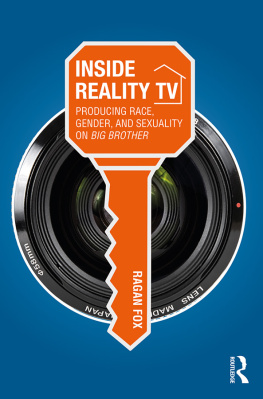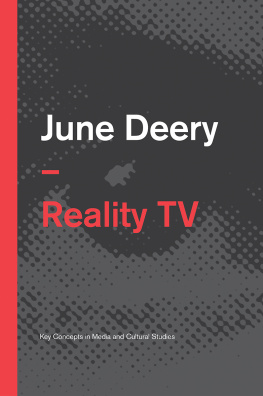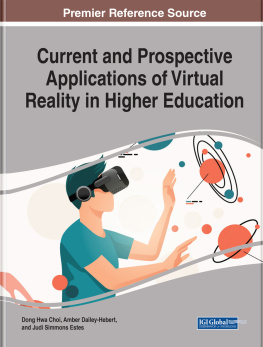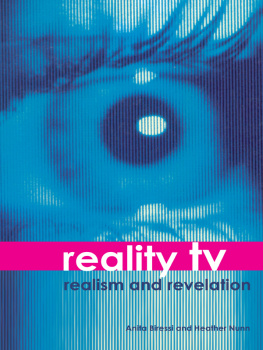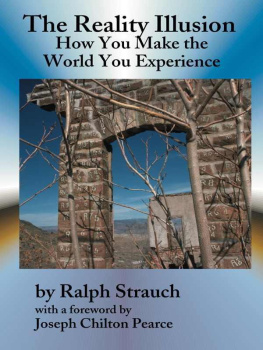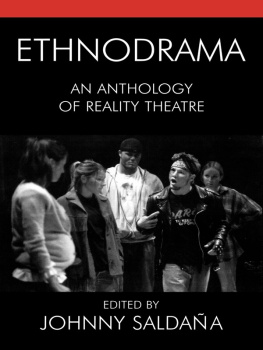Inside Reality TV
In the summer of 2010, Ragan Fox was one of twelve people selected to participate in the twelfth season of CBSs reality program Big Brother. Offering a rare, autobiographical, and behind-the-scenes peek behind Big Brothers theatrical curtain, Fox provides a scholarly account of the shows casting procedures, secret soundstage interactions, and viewer involvement, while investigating how the programs producers, fans, and players theatrically render identities of racial and sexual minorities. Using autoethnography, textual analysis, and spectator commentary as research, Inside Reality TV reflects on and critiques how identity is constructed on reality television, and the various ways in which people from historically oppressed groups are depicted in mass media.
Ragan Fox is Professor of Communication at California State University, Long Beach. He is the author of two poetry collections, Heterophobia (2006) and Exile in Gayville (2009). In the summer of 2010, Fox was a contestant on the twelfth season of CBSs Big Brother. He currently lives in West Hollywood with his French bulldog, Beau.
Inside Reality TV
Producing Race, Gender, and Sexuality on Big Brother
Ragan Fox
First published 2019
by Routledge
711 Third Avenue, New York, NY 10017
and by Routledge
2 Park Square, Milton Park, Abingdon, Oxon OX14 4RN
Routledge is an imprint of the Taylor & Francis Group, an informa business
2019 Taylor & Francis
The right of Ragan Fox to be identified as the author of this work has been asserted by him in accordance with sections 77 and 78 of the Copyright, Designs and Patents Act 1988.
All rights reserved. No part of this book may be reprinted or reproduced or utilised in any form or by any electronic, mechanical, or other means, now known or hereafter invented, including photocopying and recording, or in any information storage or retrieval system, without permission in writing from the publishers.
Trademark notice: Product or corporate names may be trademarks or registered trademarks, and are used only for identification and explanation without intent to infringe.
Library of Congress Cataloging-in-Publication Data
Names: Fox, Ragan, author.
Title: Inside reality TV : producing race, gender, and sexuality on Big brother / Ragan Fox.
Description: New York : Routledge, 2018.
Identifiers: LCCN 2018018521 | ISBN 9781138065567 (hardback) | ISBN 9781138065574 (pbk.)
Subjects: LCSH: Big brother (Television program : United States) | Sex role on television. | Gays on television. | Fox, Ragan. | Television personalitiesUnited StatesBiography.
Classification: LCC PN1992.77.B495 F79 2018 | DDC 791.45/72dc23
LC record available at https://lccn.loc.gov/2018018521
ISBN: 978-1-138-06556-7 (hbk)
ISBN: 978-1-138-06557-4 (pbk)
ISBN: 978-1-315-15963-8 (ebk)
Typeset in Bembo
by Apex CoVantage, LLC
I dedicate this book to my mother, Laura Henson, and sister, Tina Fox, both of whom spent countless hours watching me on Big Brothers Internet feed. I am also indebted to Dr. Sharon Downey and Dr. Jessica Abrams. Their professional support and friendship enabled me to participate in Big Brothers twelfth season.
In the summer of 2010, I competed in the twelfth season of CBSs reality show Big Brother. New friends and professional colleagues sometimes ask what motivated me to be on a reality show. A college professor isnt the type of person I picture on those programs, they sometimes say. I admittedly sacrificed my scholarly ethos when I hopped onto a ten-foot-tall, slippery hot dog to win power in the house. Telling a fellow houseguest that she resembled a red-feathered parrot from hell certainly did not help my case for tenure.
The full and suffocating weight of the Why participate? question felt its heaviest the morning after Season 12s finale. My department chair Amy called with an ominous message the night after the season ended and CBS released me back to the wild. She instructed me not to return to teaching until I met with the universitys high-level administration and attorneys. Beads of sweat tangoed from my armpits to the bony ends of my pelvis. Was I going to be fired? The show primarily takes place over summer vacation, so it was not like I dropped the ball on my work obligations. Before I moved into the house, I painstakingly worked with my department chair to prepare online lessons for fall class days I might miss, should I make it into latter weeks of the game. What could this meeting be about?
I had heard horror stories about so-called super fans of the program trying to get houseguests fired from their jobs. The shows 24-hour Internet feed provides opportunities for viewers to capture, isolate, and edit particularly unflattering moments and electronically send the audio and visual material, without context, to employers. Before moving into the house, I learned that a few overzealous audience members worked to have Season 6 winner Maggie Ausburn fired from her nursing job after she allegedly admitted to unsavory aspects of her past. Imagine being recorded around the clock. Nearly every word you utter is transcribed by a viewer and then posted to one of the many fan websites dedicated to Big Brother. Any dark or funny tale you tell can be ripped from its larger narrative and used as ammunition against you. This is a nightmare scenario for a queer academic with an acerbic, often inappropriate sense of humor. Would I be the next Maggie?
After listening to Amys message, I spent a panicked-filled day preparing to convene with university administrators. I brainstormed questions they might pose and rehearsed answers. Rehearse carries the unflattering connotation of a ruse, as if my responses were an insincere performance designed to retain my academic post. I felt like the flawed protagonist of Gillian Flynns novel-turned-movie Gone Girl, wherein a man self-consciously and uncomfortably performs the role of a husband who did not kill his wife. The character narrates how performing innocence feels inauthentic even though he is innocent of the crime.
As a performance studies scholar, I am intimately familiar with performances deleterious associations. U.S. history is rooted in an anti-performance bias. In the late nineteenth century, Victorian Americans believed prostitutes and depraved men occupied U.S. playhouses. Members of high society condemned the stages use of illusionistic devices such as scenery, makeup, and costuming, all of which aimed at seducing the unwary away from reality into a false world of fantasy.1 I use terms like rehearse, audience, and performer throughout this book in a culturally reflexive manner. I work against Puritanical traditions that view performance as immoral, unethical, and false. This project is in part a dance through murky territory that blurs lines between manipulating self-presentation and simply being.
Its show time, I thought, as I sat in a musty university conference room across from six men in suits. A bald guy at the end of the table pulled a Dictaphone from his briefcase, pressed a button, and explained that our discussion would be recorded. Why would he have to record our conversation? Blood rushed to my face. The fast-paced, percussion-beat of my breath dizzied me. We just have to know, one of the guys mumbled, Whyd you do it?

